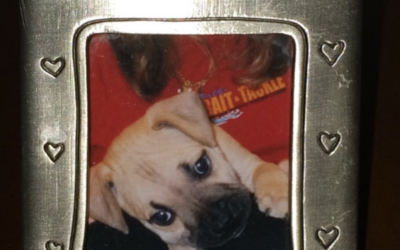What is Kitten Season?
What is Kitten Season?
Have you heard of it yet? If not, this is the time of year when every unspayed, queen (female cat) is likely to have a belly full of babies, or a litter of youngsters by her side. This is also the time when shelters are getting bombarded with mothers and their baby kittens, some even arriving without their mothers.
Why do kittens arrive seasonally?
Kitten season occurs seasonally because the queen has evolved into a “seasonally polyestrous” creature, meaning she comes into heat only during a particular time of year— during this time she is capable of having multiple pregnancies. In the Northern Hemisphere, the feline breeding season begins in very early spring and may persist throughout the summer months. Peak seasons are February through March and May through June. Throughout the rest of the year, the reproductive cycle goes into a state of dormancy referred to as “anestrus.”
Why are cats so prolific?
The domestic cat has long been recognized for her fertility. In fact, the feline was worshipped as a symbol of fertility in ancient Egypt. Bastet, the Egyptian goddess of fertility, was portrayed as a cat.
Unspayed kitties typically experience their first heat cycle (estrus) sometime between five and nine months of age. A queen who is in heat is exceptionally likely to become pregnant for the following reasons:
What to do if you find a litter of kittens?
- Keep them where you found them and wait for the mother to return. Make sure she is taking good care of them. Once they are old enough and if you can afford it, humanely scoop up the kittens and put them through the spay/neuter program. We all think we are doing a “good deed” when we find an animal a good home. But what happens when we can’t find a good home and these animals are taken to the shelter? With their fragile immune systems and labor-intensive care and socialization needs, kittens are, tragically, the most vulnerable of all shelter residents. Kittens under four weeks old cannot eat on their own and they also need to be manually stimulated to urinate and defecate, which requires hands-on care every two to four hours. And when there are more kittens than hands to go around? Well, you see the dilemma.
- Access the situation and make sure the babies and mother are in a safe place. If the babies are alone, chances are the mother cat is out hunting for food and will be back.
- Leave wet food and water for the babies.
- If the babies are cold, or getting cold, put uncooked rice in a sock and heat it in a microwave. Put it around the kittens, making sure the socks are not too hot. Make sure the kittens can crawl away if they get too hot. Rice works better than water bottles because when it cools down it does not get cold.
- Wait approximately ten to twenty minutes of crying. If nothing bad has happened to the mother, she will come back.
- When she does come back, give her support. If Mom is friendly, consider bringing her inside to raise her babies in the safety of a home. You can also crate them in a garage.
- If she isn’t friendly, or you can’t take them in, then put a nice big box out with towels for her to nest in. Make sure she has plenty of food and water. Because of instinct, she will move the babies at some point. The more inviting you make her stay the more likely she will continue to hang around. The kittens will start roaming at about 3 weeks old, and they will start eating solid food at about 4 to 5 weeks. That’s when you’ll see them show up for dinner with Mom.
- Again, if you can’t do a full-fledged rescue, it’s okay to T/N/R (trap/neuter/return) this family when the kittens are old enough. Don’t feel guilty you haven’t been able to find them homes or bring them inside. The most important thing is that you don’t ignore them. This family needs you.
How can you help during “Kitten Season”?
- Participate in the Cat Spay/Neuter Program – Take your cat to get fixed. Sponsor a shelter cat to get fixed. Humanely catch a stray cat and get them fixed. When the babies are old enough, get them fixed.
- Become a Season Kitten Hero – You can foster a litter of kittens with your neighbors, donate old towels and blankets to your local shelter, or share a post on social media from a group that’s looking for volunteers or adopters. “Send in $10 or $20, and you’ve just vaccinated a litter of kittens, or maybe you can throw a virtual kitten baby shower at work to purchase supplies off our Amazon wish list.
- Volunteer your time at a shelter.
- Become a foster pet parent.
- Help organize events to bring in money for the shelters.
- Be an advocate. The first and most obvious answer to helping prevent or at least slow down kitten season is to sterilize your cats. Go even further and be an advocate by encouraging others to spay/neuter too. Find resources in your area and help people through the process of getting their animals sterilized. If you need a list of spay/neuter resources in your area, please email cats@idausa.org, and they will help.
“Where’s Jake?” “Playing hide-n-go seek!”


You Might Also Like
What Are The Nutritional Stages Over A Dog’s Lifespan?
Happy Wednesday everyone! It’s been a minute since I last posted. It’s been a crazy busy time for us and it doesn’t look like it’s going to stop any time soon but I didn’t forget about you. I’m back and ready to blog! One of my loyal readers has suggested I create...
Your Dog’s Zodiac Sign
Happy Wednesday everyone! Ever wonder what your pet's reaction means to something? Your Dog's Zodiac Sign is a fun post that sheds light on their behavior based on the month they were born. Jake and Maggie are Gemini's born June 8, 2017! The horoscope (see chart)...
The Stigma Surrounding The Pitbull Breed
Happy Wednesday everyone! Today on the blog we are talking about The Stigma Surrounding The Pitbull Breed. For those of you who have never owned a Pitbull, I want to tell you that they are a wonderful breed. So when I heard about the UK banning all XL bully dog...




0 Comments